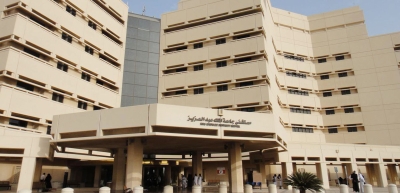
The National Biotechnology Strategy is a national initiative aimed at enhancing the position of the Kingdom of Saudi Arabia as a leading country in the biotechnology sector. The strategy serves as a comprehensive roadmap for the Kingdom to become a global hub for biotechnology by 2040. It was launched by Crown Prince and Prime Minister, His Royal Highness Prince Mohammed Bin Salman Bin Abdulaziz Al Saud, on January 25, 2024.
The strategy aims to improve national health, enhance the quality of life, and protect the environment. It also seeks to achieve food and water security, create economic opportunities, and localize promising industries, to realize the goals of Saudi Vision 2030.
Objectives of the National Biotechnology Strategy
The National Biotechnology Strategy aims to address challenges, seize opportunities in a rapidly growing sector, and make the Kingdom a global hub in biotechnology by 2040. It seeks to enhance health and quality of life for citizens, stimulate economic growth, create quality investments and jobs, promote integration between the public and private sectors, contribute to the development of new industries, and ensure environmental sustainability.
The National Biotechnology Strategy aims to contribute with 3 percent to the non-oil gross domestic product (GDP), with a total cumulative impact reaching SAR130 billion by 2040. The strategy also seeks to create approximately 11,000 quality jobs by 2030 and about 55,000 quality jobs by 2040. In addition, it aims to make the Kingdom a leading regional hub for biotechnology in the Middle East and North Africa by 2030 and achieve global leadership in the sector by 2040.
National Biotechnology Strategy Trends
The National Biotechnology Strategy outlines four strategic directions: First: Vaccines, by localization of the vaccine industry to achieve self-sufficiency and to develop it using innovative technologies. Second: Biomanufacturing and localization, by establishing a local biomanufacturing platform, facilitating global export, and providing biopharmaceuticals in the Kingdom. Third: Genomics, by contributing to the establishment of a knowledge base to understand the local genome, promoting health prevention methods, and enhancing innovation. Fourth: Improving plant cultivation, by achieving sustainability in food supplies, such as stimulating local agricultural production and promoting green practices that help sustain the environment.
National Biotechnology Strategy and Saudi Vision 2030
The National Biotechnology Strategy contributes to achieving approximately eleven strategic objectives, such as facilitating access to healthcare services, improving the value of healthcare services, supporting prevention against health risks, protecting the environment from natural hazards, contributing to the localization of promising industries, increasing the local content in non-oil sectors, supporting the contribution by small and medium-sized enterprises to the economy, developing local talents, attracting local talents, enhancing the effectiveness of financial planning and government spending efficiency, ensuring food and developmental security, and ensuring the optimal use of water resources.
The strategy also contributes indirectly to achieving approximately twenty-six strategic objectives of Saudi Vision 2030 across various fields, such as promoting a healthy life, where the biotechnology sector focuses on improving the health and life of citizens and residents and addressing medical issues, to increase the healthy lifespan of individuals by five years by 2040. Environmental sustainability, where the biotechnology sector can provide a sustainable environment and enable the Kingdom to achieve its goals related to reaching net-zero carbon emissions. A thriving economy, where the biotechnology sector contributes to supporting the Kingdom by enhancing its economy and its resilience to address challenges. This is achieved by increasing the localization of non-oil sectors and improving the balance of payments.
Related quizzes

